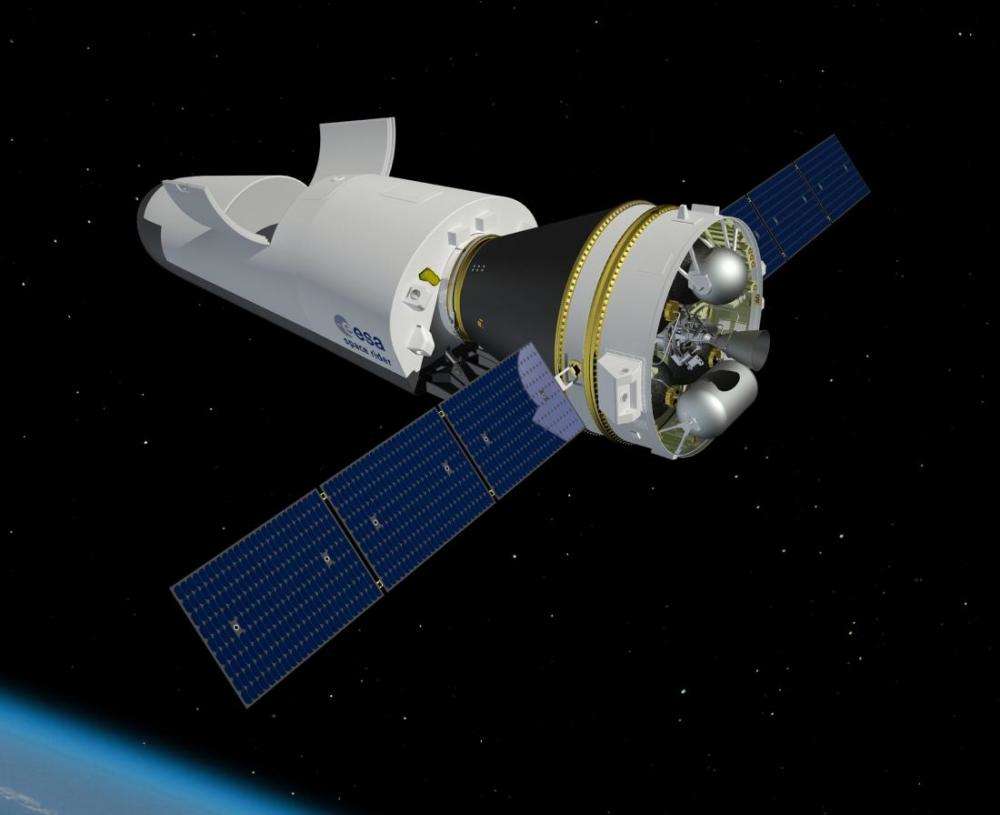A successor to the IXV reentry demonstrator, Space Rider aims to be Europe’s next-generation reusable transportation system for low Earth orbit.
Thales Alenia Space (Thales 67%, Leonardo 33%) and European Launch Vehicle (ELV) have signed a contract with the European Space Agency (ESA) for the engineering and preliminary development of the automated reusable Space Rider transportation system.
Space Rider is designed for deployment into low Earth orbit (LEO) by the upgraded Vega C light launcher, which is scheduled to make its first flight in 2019. It is being hailed by Thales Alenia Space as a major step forward in the reentry vehicle roadmap.
ELV is a joint venture between Italy's space propulstion specialist Avio SpA (70%) and the Italian Space Agency ASI (30%).
The goal of Space Rider is to provide Europe with an affordable, independent, reusable end-to-end integrated space transportation system for unmanned missions and for routine access and return from low orbit. It will be used to transport a variety of payloads into different LEO altitudes and inclinations.
Featuring a lifting body configuration, Space Rider is designed as a free-flying orbital platform, capable of remaining two months in orbit, safely reentering the atmosphere and landing. It can be recovered along with its payload, refurbished, and reused for up to six missions.
It combines the characteristics of a space system designed for scientific experiments in low Earth orbit with those needed for guidance outside the atmosphere and automated landing, including microgravity experiments, in-orbit validations, testing of science and exploration technologies, etc., plus payload recovery on the ground for examination and retesting.
Space Rider follows ESA’s Intermediate eXperimental Vehicle (IXV), which successfully completed a suborbital test flight in February 2015, including atmospheric reentry and sea landing.
Leading a consortium of European manufacturers, research centres and universities, Thales Alenia Space is responsible for the development of the reentry module (RM), derived from the IXV. ELV is in charge of the development of the service module, derived from the Vega C upper stage, AVUM (Attitude and Vernier Upper Module).

